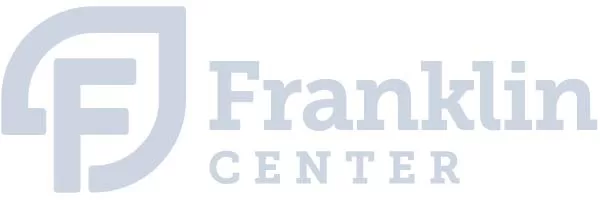Meeting International Standards for Quality Services
When you’re choosing a program for your child—especially one that supports their future—you do your research. You might look at things like teaching credentials, therapy licenses, or other qualifications tied to specific people or programs.
For organizations, we might be less familiar with what “seal of approval” to look for. Which organization should be certifying which services? If you saw the news about the CARF® certification for Franklin Capstone (both as a transitions and community engagement program as well as for vocational rehabilitation services), you might not be sure what that is, or what it means.
Living Up to International Standards
The Commission on Accredited Rehabilitation Facilities (or CARF) has been around since 1966. It works with organizations offering aging services, behavioral health, child and youth services, continuing care retirement communities, employment and community services, medical rehabilitation, opioid treatment programs, and vision rehabilitation services.
That’s a big list, and its coverage is also large, spanning North and South America, Europe, Asia, and Oceania.
As a third-party validation, CARF certification demonstrates quality and shows an organization is meeting internationally recognized benchmarks.
“CARF is a national standard,” said Capstone director Mike Faeth. “If you’re in the field of Employment and Career Services and working with state or Federal contracts, you need to show that you’re providing services that meet a certain level.”
Other CARF-certified Employment and Career Services providers include the Veterans’ Administration and Goodwill/Easter Seals.

How Does CARF Certification Work?
A unique feature of CARF is that the audit is done by people called surveyors, who are full-time employees of other facilities. In other words, they don’t work in administration, they’re “in the field.” Mike Faeth is now beginning as a surveyor-intern and will be conducting reviews for other organizations next year.
“CARF surveys thousands of organizations and they update all of the manuals annually,” said Faeth. “They’re always evaluating how people are carrying out the spirit of the standard and what’s effective.”
Once an organization applies, that initiates a series of actions:
- The leadership team completes a self-assessment
- Surveyors come for a site visit, both to observe and to ask more questions.
- Based on all the inputs, CARF provides what’s called a Plan of Action highlighting any areas to improve.
- If the organization meets the standards, CARF will issue a certificate about six to eight weeks after the team has finished the site audit and document review.
Benefits Beyond Credibility
The industry-wide perspective is one of the values for Capstone. “We’re always learning and refining and creating new ways of helping our participants,” said Mike. “CARF offers not just the third-party credibility, but access to a whole range of best practices, from risk management to technology to teaching.”
That breadth of knowledge will benefit Capstone’s person-centered planning, which means making sure the approach is collaborative and focused on what each person needs. “At Capstone we’ve found success with less of a ‘pick off the menu’ approach and more when we work together with participants and their families and other partners to come up with a plan they can commit to and be invested in,” said Faeth.
The result is a custom plan encompassing both needs and goals. “The really wonderful thing at Capstone is that we individualize all our offerings,” said Amy Epperson, Vocational Services Coordinator. “For example, with one student I worked on their interaction skills — how to have a good dialogue. With another one we helped them get a driving permit so they could apply for a job.”
Another aspect of employment services at Capstone is the employer connections. “We reach out to businesses in the community – both for-profit and nonprofit – and ask if a student can work there on a short-term trial basis. Being inside a business is an invaluable experience,” said Epperson.
In addition to employment services, Capstone offers both full-day and flexible enrollment in a wide range of courses centered on community participation, independent living, post-secondary education, social recreation, and social skills. Participants can be part of employment services either in combination with classes, or independently.
“We’re obsessed with quality improvement, so CARF is a great investment for us. It not only demonstrates our capabilities to others, but it also gives us a great resource to continue to build on those capabilities as we grow.”
If you’d like to learn more about what Capstone offers, please contact us. We’d love to talk with you.
Published June 20th, 2025
About The Author: Franklin_chloe.herzog
More posts by franklin_chloe.herzog